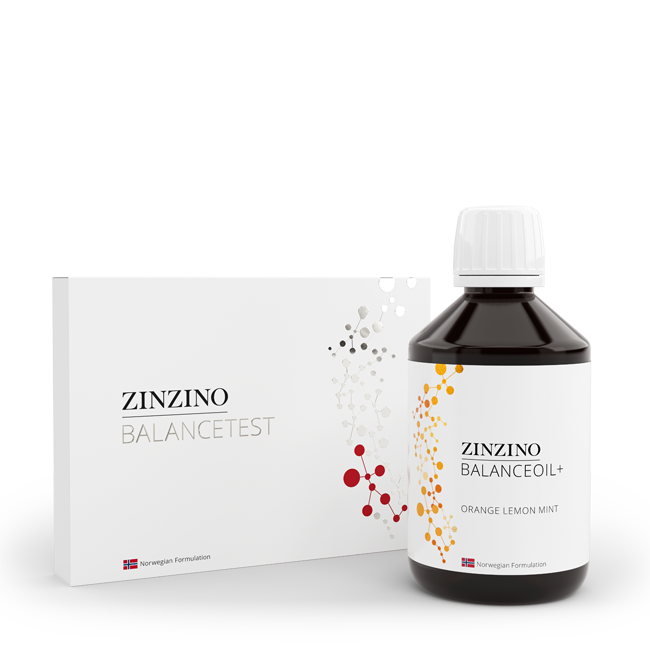Chronic inflammation often gets mentioned in health discussions, but it’s a topic that carries more weight than a lot of folks realize. While inflammation is the body’s way of protecting itself against injury or infection, trouble starts when it sticks around longer than needed. When it doesn’t ease off, it morphs into chronic inflammation, which can influence your body in many ways over time. Knowing the health conditions tied to chronic inflammation helps people spot issues early and take practical steps to support their wellbeing.
Take the test. Start your health journey.
Find out if your body is absorbing its vital nutrients, or if you’re one of the 6.3 billion people who are Omega-3 deficient.
https://www.zinzino.com/shop/2020274761/US/en-US/products/premier-kits/910465
By combining pure fish oil with extra virgin olive oil from pre-harvest olives, the Omega-3 nutrients are kept fresh and potent with the same powerful antioxidants naturally found in fish.
One small BalanceShot. A quantum leap for human health.

Why Chronic Inflammation Matters
Chronic inflammation is sneaky because it doesn’t always bring clear symptoms. It’s a slow burner that can be present for months or even years. Triggers include repeated exposure to irritants, untreated infections, autoimmune reactions, or lifestyle habits like eating poorly, skipping exercise, or coping with ongoing stress. This sort of lingering inflammation links to a range of health conditions that can stick around for years and are tough to treat if they’re ignored.
From joint aches to heart issues, studies keep showing that chronic inflammation is a major player behind some of the most common chronic illnesses. The Centers for Disease Control and Prevention (CDC) and other health groups highlight chronic inflammation as the backbone behind numerous diseases contributing to serious health problems around the world. Keeping tabs on it matters, especially since bringing inflammation under control sometimes helps prevent bigger challenges down the road.
The Immune System’s Role in Chronic Inflammation
Your immune system is designed to take on threats like infections or injuries. In cases of acute inflammation, immune cells dash to the injured spot to repair the area and fight off germs. But when immune responses drag on after the initial problem disappears, their continued activity can harm healthy tissues. This long-term response can hurt otherwise healthy cells, creating a setting where damage naturally grows.
Some individuals are more at risk of developing chronic inflammation because of genetics, lifestyle, or long-term health conditions. Recent research also points to environmental factors, such as air pollution or exposure to certain toxins, worsening inflammatory reactions. Paying attention to what’s going on inside your body can offer a head start in keeping unwanted health problems in check.
Common Health Conditions Linked to Chronic Inflammation
Chronic inflammation isn’t just about the obvious swelling or an occasional sore joint. It can have far-reaching effects throughout your body. Here are several health problems frequently connected to chronic inflammation:
- Rheumatoid Arthritis: An autoimmune problem where your immune system starts treating your joints as invaders, causing pain, swelling, and stiffness. Instead of handling regular wear and tear, the body’s immune defenders target cartilage and bone, sometimes leading to lasting joint damage.
- Type 2 Diabetes: Long-term inflammation can stop your cells from responding well to insulin, making blood sugar rise. The cycle can loop back—diabetes itself can amplify inflammation.
- Heart Disease: Chronic inflammation is close friends with cardiovascular problems, especially atherosclerosis, where arteries get narrow and tough. Inflammatory compounds wear down blood vessel linings, making cholesterol more likely to pile up and harden, setting the stage for heart attacks or strokes.
- Asthma and Other Respiratory Diseases: Inflammation constricts airways, making breathing harder. Ongoing airway swelling and mucus in asthma, for example, cause most of the troublesome symptoms.
- Inflammatory Bowel Disease (IBD): Both Crohn’s disease and ulcerative colitis are marked by lasting inflammation in the digestive tract, causing pain, bloating, and persistent tummy troubles.
- Autoimmune Skin Conditions Like Psoriasis: Excessive immune activity leads to red, flaky skin and frequent flare-ups.
- Certain Types of Cancer: Long-term inflammation can mess with DNA and help abnormal cells thrive, linking it to cancers of the colon, liver, and stomach.
- Alzheimer’s Disease: There’s growing evidence that inflammation in the brain may help pave the way for dementia, including Alzheimer’s.
Other conditions—such as lupus, chronic kidney disease, and even depression—are also increasingly associated with chronic inflammation. This shows just how much ongoing low-level inflammation can shape health beyond the classic examples.
Understanding How Inflammation Triggers Health Issues
It’s important to check out how chronic inflammation sparks these issues in the first place. Here are some key points:
- When it lingers, inflammation keeps sending out healing chemicals, but if they stick around too long, those same compounds can irritate healthy tissues and organs.
- Tiny blood vessels can get damaged, limiting oxygen and nutrients where the body needs them most.
- Constant immune attacks lead cells to lose function or even develop scar tissue. That’s why joints can break down in arthritis, or arteries can get stiff in heart disease.
- Unbalanced immune responses sometimes confuse the body, leading to autoimmune situations where friendly tissues are mistaken as threats.
Recognizing these effects isn’t always easy, since symptoms can overlap with normal tiredness or aches. Often, lab tests or scans are needed to check for trouble beneath the surface.
What Can Make Chronic Inflammation Worse?
Certain behaviors and lifestyle choices can set the stage for chronic inflammation or make existing inflammation harder to manage:
- Poor nutrition: Regularly eating ultra-processed foods, lots of sugar, and bad fats can make inflammation worse at the cellular level. Meanwhile, loading up on vegetables, fruits, healthy grains, and omega3-rich foods usually help settle things down.
- Low activity: Sitting for hours each day can keep inflammatory byproducts from clearing out. Adding simple movement throughout the day—whether it’s walking, stretching, or dancing—can tone down inflammation.
- Stress overload: When stress sticks around, it tells immune cells to stay in action for too long. Over months or years, this keeps the body stuck in a low-level fight even when real threats are gone.
- Too little sleep: With less than seven hours a night, your body misses out on important repair. Bad sleep habits make inflammation worse and slow recovery.
- Smoking or vaping: The chemicals in tobacco products crank up oxidative stress and keep your immune system buzzing, which raises inflammation throughout the body.
- Poorly managed infections or injuries: If infections or wounds don’t get proper treatment, immune responses stay switched on and can turn chronic.
Everyday Steps to Help Manage Chronic Inflammation
The good news is you can do plenty to keep chronic inflammation from taking over. Even if you’re faced with a condition connected to this immune response, small daily adjustments make a difference:
- Balanced food choices: Mixing up meals with lots of fruits, veggies, seeds, beans, lean protein, and good fats gives your body anti-inflammatory fuel. The Mediterranean diet is great to check out, thanks to its focus on fresh, whole foods with proven benefits for heart health and inflammation.
- Regular movement: Consistent activity, like daily walks, swimming, or simple stretching, helps your immune system reset and keeps inflammation under control. Aim for 30 minutes on most days, but remember, every bit helps.
- Stress relief: Building in moments for deep breathing, mindfulness, or even chatting with friends can tone down stress hormones, lowering extra immune activity.
- Healthy sleep habits: Shooting for at least seven hours of sleep every night helps your immune response recover and repair body tissues properly.
- Dropping tobacco products: Quitting smoking and saying no to vaping lets your body shift toward a healthier baseline, easing inflammation risks.
- Routine health check-ins: Regular visits with your doctor can highlight inflammation early. Tests like C-reactive protein (CRP) or ESR offer clues about whether your body is dealing with hidden inflammation.
Long-Term Effects and Why Early Action Helps
Unchecked chronic inflammation slowly wears down organs and tissues. This gradual damage is what ties inflammation to bigger disease risks later in life. Noticing ongoing low-level symptoms—such as unexplained tiredness, dull aches, or appetite changes—can help catch problems sooner. Nipping inflammation in the bud or tackling it with improved routines makes it more likely you’ll have less trouble down the line, even if you already struggle with arthritis, diabetes, or heart problems.
Sometimes, anti-inflammatory medications are recommended when needed. However, most long-term strategies revolve around better daily choices. Taking early, proactive steps boosts quality of life and helps avoid more serious disease complications in the future.

Gut Health Test
Is life going your way? Listen to your gut – it drives your health.
Your gut holds 70% of your immune system* and every gut is different. Testing your gut with a drop of blood changes the game.

https://www.zinzino.com/2020274761/us/en-US/explore/gut-health-test/
Wrapping Up
Staying mindful of chronic inflammation, and how it might connect to your health, has real benefits for lifelong wellness. Small, positive habits—like eating better, moving more, sleeping enough, and managing stress—can help keep your immune system balanced. Awareness, together with regular chats with your medical team, goes a long way in managing inflammation and guarding against health problems that can sneak up as the years go by.
